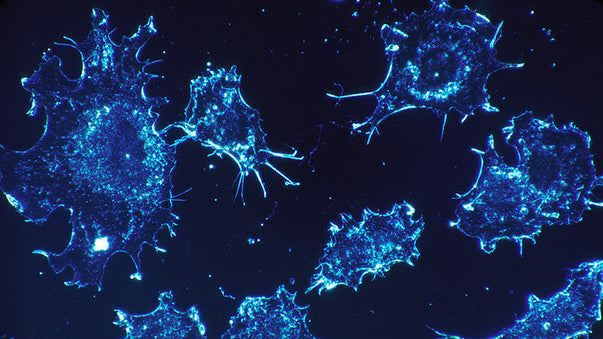The Awesome Potential of CRISPR-Cas9

Most of us know, by experience, that sleep deprivation is very bad for the brain. This is confirmed in a recent study by Italian researchers, showing that sleep deprivation causes the brain to literally start eating itself. "We show for the first time that portions of synapses are literally eaten by astrocytes because of sleep loss," said the lead scientist. Episodic sleep loss clears potentially harmful debris and rebuilds worn brain circuitry, which can be a healthy housekeeping function, but chronic sleep deprivation leads to excessive microglial activity, which seems related to Alzheimer’s disease and other forms of neurodegeneration.
The take-home message here is clear. Don’t worry if you lose some hours of sleep every now and then, but chronic sleep deprivation can be very dangerous for your mental health. We already knew that, of course.
But the hero of recent news headlines is the CRISPR-Cas9 technology, which after being hailed as Science magazine’s 2015 Breakthrough of the Year continues to impress the world with cut-and-paste gene editing.
"Using the recently discovered CRISPR-Cas9, the researchers essentially edited out this protein from the cells," notes Popular Science, reviewing a promising step in cancer research (see below). "When they did, the cells weren’t able to divide at the same super-fast rate that they were able to before." A press release on the spectacular synthetic biological circuits developed by University of Washington scientists using CRISPR-Cas9, also covered below, notes that cells could potentially be reprogrammed to undergo new developmental pathways, to regrow organs or to develop entirely new ones.
The non-specialists who want to understand the potential of CRISPR-Cas9 gene editing technology must wait only a couple of weeks for the book, A Crack in Creation: Gene Editing and the Unthinkable Power to Control Evolution, co-authored by Jennifer Doudna, one of the inventors of the technique.
"Because CRISPR allows precise and relatively straightforward DNA editing," write the authors, "it has transformed every genetic disease - at least, every disease for which we know the underlying mutation - into a potentially treatable target."
Sleep deprivation is very bad for the brain. Researchers at Università Politecnica delle Marche, Italy, have found that chronic sleep deprivation causes the brain to literally start eating itself, New Scientist reports. The study, published in Journal of Neuroscience, shows that chronic sleep loss in lab mice may lead to a state of sustained activation of brain cells responsible for housekeeping functions in the brain. These cells, which usually perform useful functions by remodeling synapses and breaking down debris, could turn against healthy brain tissue after prolonged sleep deprivation. In February, Johns Hopkins researchers published a paper in Science describing a link between sleep deprivation and Alzheimer’s disease.
Designer virus prompts the immune system to act against cancer. Scientists at the University of Geneva, Switzerland, have created artificial viruses that can be used to target cancer. These designer viruses alert the immune system and cause it to send killer cells to help fight the tumor. The research results, published in Nature Communications (open access), could lead to innovative cancer treatments. The designer virus is built by adding proteins typical of cancer cells to a natural virus, which is not harmful but does alert the immune system of a viral infection. Therefore, infection with the designer virus can teach the immune system to recognize these cancer proteins as dangerous.
Breakthrough synthetic molecule could be a magic bullet against malaria. An international research team led by scientists at the Liverpool School of Tropical Medicine, UK, have developed a molecule which has the potential to become the first fully synthetic, one-dose treatment for malaria. The molecule, known as E209, and described in a research paper published in Nature Communications (open access), meets key requirements of the Medicines for Malaria Venture drug candidate profiles. "E209 is a breakthrough molecule, it is fully synthetic, retains the killing efficiency of the artemisinins, works against K13 mutant parasites, and is slowly eliminated, raising the hope that it could be used as a single dose cure," said a senior author of the study.
CRISPR-Cas9 gene editing permits slowing cancer growth. Researchers from the University of Rochester’s Center for RNA Biology have identified a new way to potentially slow the fast-growing cells that characterize all types of cancer. In cancer, the cell division cycle becomes uncontrolled: cells divide without stopping and invade surrounding tissues. The scientists identified a protein that plays an important role in the cell division cycle, and used the CRISPR-Cas9 gene editing technique to eliminate the protein from the cells. The research paper, published in Science, shows positive results indicating that the method inhibits pathological cell proliferation.
CRISPR-Cas9 used to create synthetic biological computing circuits. Synthetic biologists at the University of Washington have demonstrated a new method for digital information processing in living cells, analogous to the logic gates used in electric circuits. The biological circuits are the largest ever built in eurkaryotic cells that, like human cells, contain a nucleus and other structures that enable complex behaviors. The study, published in Nature Communications (open access), shows how the scientists used the CRISPR-Cas9 gene editing technique to create a set of synthetic genes that function in cells like electronic NOR gates, and built complex computing circuits out of the cellular NOR gates. The first applications of the technique could include engineered immune cells that fight cancer.
Other CRISPR-Cas9 news. In other CRISPR-Cas9 news, the European Commission’s research and development magazine, Horizon, elaborates on the potential of the gene editing technology to improve plants and feed the world, and a story by a doctoral student at the University of Washington provides a review of current and potential future applications.
More Articles
Don't miss a beat! In our Pulse Newsletter, Thrivous curates the most important news on health science and human enhancement, so you can stay informed without wasting time on hype and trivia. It's part of the free Thrivous newsletter. Subscribe now to receive email about human enhancement, nootropics, and geroprotectors, as well as company news and deals.
Read more articles at Thrivous, the human enhancement company. You can browse recent articles in Thrivous Views. See other Pulse Newsletter articles. Or check out an article below.
-
Cancer Immunotherapy Hopes
The natural world is full of compounds, engineered by evolution over billions of years, that medicine can harness to improve ...
-
Interview with Dr. Cory Funk, Thrivous Science Advisor
When Lincoln suggested to start interviewing Thrivous’ scientific advisors, I jumped on board to learn more about nootropics, and share ...


